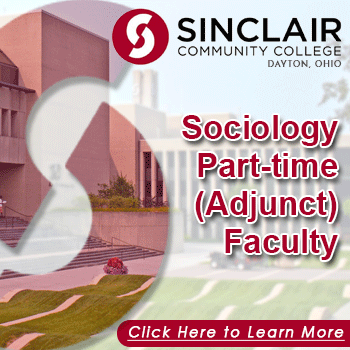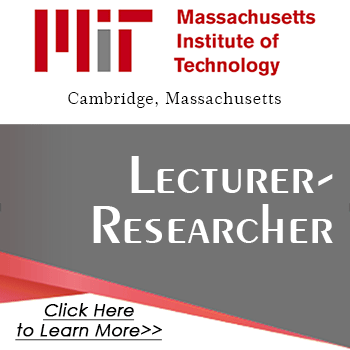This job has Expired
Associate Senior Lecturer in data-driven epidemiology and biology of infection
Job Description
Ref PAR 2023/582
The University of Gothenburg tackles society’s challenges with diverse knowledge. 56 000 students and 6 600 employees make the university a large and inspiring place to work and study. Strong research and attractive study programmes attract scientists and students from around the world. With new knowledge and new perspectives, the University contributes to a better future.
Generic description of the DDLS Fellows program
Data-driven life science (DDLS) uses data, computational methods and artificial intelligence to study biological systems and processes at all levels, from molecular structures and cellular processes to human health and global ecosystems. The SciLifeLab and Wallenberg National Program for Data-Driven Life Science (DDLS) aims to recruit and train the next-generation of data-driven life scientists and to create globally leading computational and data science capabilities in Sweden. The program is funded with a total of 3.1 billion SEK (about 290 MUSD) over 12 years from the Knut and Alice Wallenberg (KAW) Foundation.
The DDLS program will recruit 39 high-profile young group leaders and launch over 210 postdoctoral positions and establish a research school for 260 PhDs, including industry PhDs and postdocs. Fellows will be recruited to the 11 participating host universities/organizations, but brought together under a national DDLS program coordinated by SciLifeLab. The DDLS program has four strategic areas: cell and molecular biology, evolution and biodiversity, precision medicine and diagnostics, epidemiology and biology of infection. For more information, please see www.scilifelab.se/data-driven .
During 2022-2023, the first round of 20 young group leaders joined us as DDLS Fellows, and now we are looking to recruit an additional group of 19 fellows. Each DDLS Fellow will receive a recruitment package of 17 MSEK (about 1.6 MUSD) for a 5-year period, covering their own salary and other resources, such as two PhD students and postdoc positions. The Fellow positions are tenure-track with the host organizations assuming responsibility of the long-term faculty appointments following a tenure evaluation.
The future of life science is data-driven. Will you be leading that change with us? Then join us in this unique program!
As part of the national program within Data-Driven Life Science (DDLS ), the University of Gothenburg is recruiting a DDLS Fellow within data-driven epidemiology and biology of infection, for a tenure track position as an Associate Senior Lecturer (Assistant Professor). The successful candidate will receive a generous recruitment package.
Within the DDLS program, you can develop your full potential as a leading independent scientist in a flourishing academic environment linked to Sahlgrenska University Hospital, Sahlgrenska Academy (medical faculty at GU), including the Core Facilities, AstraZeneca and ChalmersUniversity of Technology in Gothenburg. You will become part of the local scientific environment and network within the Wallenberg Centre for Molecular and Translational Medicine, WCMTM , and nationally with the DDLS program at SciLifeLab (see more information below).
The Faculty of Science of the University of Gothenburg conducts extensive research in areas relevant for this position. This includes molecular evolution of microbes, in particular the spread and infection mechanisms of pathogens and antimicrobial resistance. and AI- and machine learning-driven software development and applications in modelling of macromolecular interactions, advanced drug discovery, and drug-drug interactions. This research forms part of the Center for Antibiotics Resistance Research and the Molecular Life Sciences focus area, and relies on the Faculty of Science infrastructure for large-scale cell-based screening . During 2023, most of the Faculty of Science will move to one newly constructed building where several departments will be co-localized for increased scientific interactions. Other relevant research areas include evolutionary biology where immunogenetics and population dynamics are studied in wildlife populations. Furthermore there is a strong tradition in mathematical biology , that welcomes applicants with an interest in stochastic population growth models, epidemiology of emerging diseases and evolution in natural populations using DDLS.
Nearby is also Chalmers University of Technology , which is currently recruiting a DDLS Fellow in cell and molecular biology, and the Faculty of Medicine (Sahlgrenska Academy), which is recruiting a DDLS fellow in precision medicine. This offers excellent opportunities for interdisciplinary collaborations between the Chalmers University of Technology and the Faculty of Medicine (Sahlgrenska Academy) at the University of Gothenburg for the successful candidate. Chalmers is a partner in Wallenberg AI, Autonomous Systems and Software Program (WASP ) and the Wallenberg Centre for Quantum Technology (WACQT ).
Subject area
Data driven epidemiology and biology of infection covers research that will transform our understanding of pathogens, their interactions with hosts and the environment, and how they are transmitted through populations. Research will have a strong focus on computational analysis or predictive modelling of pathogen biology or host-microbe systems for which multidimensional, genome- scale experimental data are now available or it may use population-scale genetic, clinical, or public health data from pathogen surveillance efforts and biobanks.
The subject area concerns research in the general area of epidemiology and biology of infection with a strong computational profile. This research subject area aims to lead to innovative development and/or application of novel data-driven methods relying on machine learning, artificial intelligence, or other computational techniques.
Subject area description
The subject area concerns research in the general area of epidemiology and biology of infection with a strong computational profile. This research subject area aims to lead to innovative development and/or application of novel data-driven methods relying on machine learning, artificial intelligence, or other computational techniques. The study of pathogen biology and host-microbe interactions and epidemiology correlated to host genetic susceptibility is necessary to understand and generate new knowledge on how pathogens are transmitted through populations. Data-driven approaches and predictive mechanistic or statistical modelling will reveal the transmission dynamics of pathogens and/or antimicrobial-resistant pathogens. Analysis of genome-scale experimental data, as well as population-scale genetic data, leads to molecular understanding of the evolution underlying pathogenic virulence, host-microbe interactions as well as antimicrobial resistance and its spread through microbial populations.
Job assignments
As the successful candidate, you are expected to initiate a competitive research program and start or further develop an independent line of research data-driven epidemiology and biology of infection and to actively apply for external funding. You are expected to actively contribute to cooperation with the medical faculty of GU, Sahlgrenska University Hospital, AstraZeneca and/or Chalmers University of Technology. You are expected to actively participate in the local meetings and activities within WCMTM as well as in meetings within the DDLS Program and cooperate within the established network of the four Wallenberg Centres of Molecular Medicine in Lund, Linköping and Umeå, and Science for Life Laboratories in Stockholm/Uppsala.
The position includes planning and performing teaching in doctoral, master’s and undergraduate programs. Teaching includes lectures, exercises and examinations as well as the supervision of doctoral, master’s and undergraduate students. A successful candidate without university-level teacher training should participate in educational courses for higher education within two years of employment.
Eligibility
A PhD in a subject area relevant to the position or equivalent scientific competency is a requirement. An applicant with a degree that is judged to be comparable is also eligible. Preference is given to applicants who have been awarded a PhD, a comparable degree or achieved equivalent scientific competency no more than five years before the expiration date of this announcement. Applicants who have obtained a doctorate earlier may also be given primary consideration if there are special reasons. Special reasons include leave of absence due to illness, parental leave or other similar circumstances. The reasons and extent of leave of absence should be clearly specified in the application and confirmed by certificates. Eligibility for employment as an Associate Senior Lecturer is stated in Chapter 4, Section 4a of the Higher Education Ordinance and the University of Gothenburg’s Employment Ordinance.
Ability to teach in English or Swedish is a requirement.
Assessment
Assessment criteria for employment as a teacher are stated in Chapter 4, Section 4a of the Higher Education Ordinance and the
University of Gothenburg’s employment regulations.
Assessment of the applications will be based primarily on scientific merits and secondarily on pedagogical and administrative merits and skills. All aspects will be carefully assessed. When assessing scientific proficiency, particular emphasis will be placed on the level of independently performed research that use big experimental, clinical, or pathogen surveillance data in innovative ways to transform our understanding of pathogens, their interactions with hosts and the environment, antimicrobial resistance, and how these are transmitted through populations. The priority area covers computational analysis or predictive modelling of pathogen-host systems for which multidimensional, genome-scale experimental data are now available and extends to using population-scale genetic, clinical, or public health data from pathogen surveillance efforts and biobanks.
The scientific assessment will be based on publications in leading international journals, where quality and impact are given more weight than total production. Favorable consideration will be given to candidates with demonstrated success in attracting external funding in competition nationally or internationally, and participation in national and international collaboration projects. Scientific proficiency is also assessed through the scientific quality of the submitted research program and the proven ability to develop and lead research activities with relevance to the present position.
Priority will be given to candidates with experience from several research environments, especially postdoctoral fellowships at universities other than the one that awarded the individual’s doctoral degree, as well as to candidates who can demonstrate international mobility. Furthermore, at the time of the interview, the applicant’s personal suitability and the plan to start their own research group will weigh heavily in the collective assessment.
When assessing teaching skills, particular emphasis is placed on well-documented educational experience of planning, performing and leading teaching. Favorable consideration will be given to documented ability to supervise doctoral, master’s and undergraduate students.
For administrative skills, special emphasis is placed on experience of leadership and experience from collaborative projects.
The overall assessment of the applications will consider proficiency and potential for development, ability to carry out the duties of the position, to cooperate with others, and to contribute to the positive development of the organization.
Other conditions
The recruitment including the DDLS recruitment package is subject to a final decision on funding by the SciLifeLab Board. The successful candidate is expected to apply for supplementary funding with national and international grants. An individual scientific and educational development plan will be determined upon agreement between the individual and the head of department. Promotion to Senior lecturer is expected within four to five years.
In Gothenburg, DDLS Fellows will be part of the Wallenberg Centre for Molecular and Translational Medicine (WCMTM ) where 26 research group leaders are currently active in different research fields. WCMTM was established in collaboration with the Knut and Alice Wallenberg Foundation, the Hospital Region West and AstraZeneca as part of a national agenda to further strengthen Sweden’s position within molecular medicine. The Wallenberg Centre is located in Gothenburg, with activities at Sahlgrenska Academy and the Faculty of Science at the University of Gothenburg, Sahlgrenska University Hospital, and AstraZeneca, to ensure unique translational research environments in the interface between academia, healthcare and the pharmaceutical industry.
Employment
Type of employment: Fixed-term employment, five years
Extent: 100%
Location: Host department depends on the hired individual’s research profile and personal preferences. First day of employment: As soon as possible, as agreed
A position as Associate Senior Lecturer (Assistant Professor) is a fixed-term position and defined as a career-development position. The purpose of the position is to allow you to develop as an independent researcher and establish scholarly and educational qualifications to fulfill eligibility requirements as a Senior Lecturer (Associate Professor). The position may be extended by at most two years because of sick leave, parental leave or other special reasons result in additional time is required to fulfill the purpose of the position. An Associate Senior Lecturer can apply for promotion to Senior Lecturer. If the Associate Senior Lecturer is deemed suitable and fulfills the criteria for promotion established by the Faculty Board he/she shall be promoted to and employed as Senior Lecturer. Refer to the requirements for being promoted to senior lecturer at the Faculty of Science (assessment criteria, Swedish only).
Appointment procedure
The selection process will include evaluation by external experts, interviews and oral presentations. The assessment of qualifications and experience will consider parental leave, sick leave or other similar circumstances. The reasons and extent of leave of absence should be specified in the application and supported by a certificate. The candidate will be given the opportunity to meet representatives of the participating departments at the Faculty of Science to evaluate in which environment the planned research program fits best.
For further information:
Regarding the position, please contact:
Margit Mahlapuu, Professor at the Faculty of Science, vice director of the Wallenberg Centre for Molecular and Translational Medicine.
E-mail: margit.mahlapuu@gu.se
Charbel Sader, communication officer at the Wallenberg Centre for Molecular and Translational Medicine.
E-mail: charbel.sader@gu.se
Unions
Union representatives at the University of Gothenburg:
https://www.gu.se/en/about-the-university/work-at-the-university-of-gothenburg/how-to-apply
Information for International Applicants
Choosing a career in a foreign country is a big step. Thus, to give you a general idea of what we and Gothenburg have to offer in terms of benefits and life in general for you and your family/spouse/partner please visit:
https://www.gu.se/en/about-the-university/welcome-services https://www.movetogothenburg.com/
How to apply
In order to apply for a position at the University of Gothenburg, you have to register an account in our online recruitment system. It is the responsibility of the applicant to ensure that the application is complete in accordance with the instructions in the job advertisement, and that it is submitted before the deadline. The selection of candidates is made on the basis of the qualifications registered in the application. Together with your application, the following should be attached:
Cover letter.
CV, including a complete list of publications and a record of research grants received (with amounts).
Description of scientific expertise and a list of ten selected scientific publications and why you chose to refer to each of them in your application.
A research plan with a description of current and planned research as well as other planned activities relevant to this position
(Maximum five pages).
Description of educational expertise, including information about the extent and level of your teaching experience and evaluations of your teaching’s quality. The description should also include a reflection on your educational approach and teaching philosophy. Description of experience of administrative duties such as collaborative projects and/or leadership or management positions. Copies of your most relevant publications in full format (maximum ten publications).
Certificates and other documents to be considered.
Any documents that are not available in electronic format should be sent in three copies to:
University of Gothenburg
Att: Linda Forsberg
Box
405 30 Göteborg
SWEDEN
The application’s reference number, PAR 2023/582, should be clearly stated when mailing complementary documents. The application is to be written in English since it will be assessed by international experts.
Closing date: October, 15 2023
The University of Gothenburg promotes equal opportunities, equality and diversity. Salary is determined on an individual basis.
Applications will be destroyed or returned (upon request) two years after the decision of employment has become final. Applications from the employed and from those who appeal the decision will not be returned.
The University works actively to achieve a working environment with equal conditions, and values the qualities that diversity brings to its operations.
Salaries are set individually at the University.
In accordance with the National Archives of Sweden’s regulations, the University must archive application documents for two years after the appointment is filled. If you request that your documents are returned, they will be returned to you once the two years have passed. Otherwise, they will be destroyed.
In connection to this recruitment, we have already decided which recruitment channels we should use. We therefore decline further contact with vendors, recruitment and staffing companies.
*Please mention you saw this ad on AcademicJobs.*




